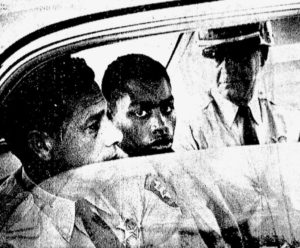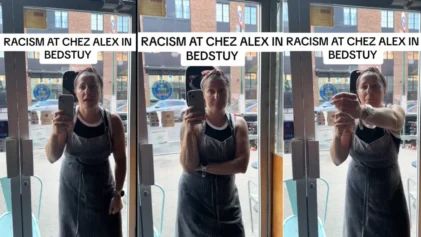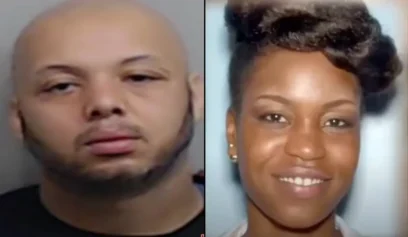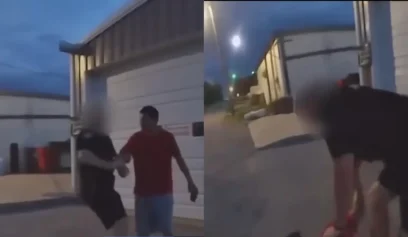
FILE – In this February 1964 file photo, Henry Montgomery, flanked by two deputies, awaits the verdict in his trial for the murder of Deputy Sheriff Charles H. Hurt in Baton Rouge, La. (John Boss/The Advocate via AP, File)
BATON ROUGE, La. (AP) — A landmark ruling by the nation’s highest court gave Henry Montgomery his first chance at freedom after nearly a half-century behind bars. Two years later, the 71-year-old Louisiana man is still waiting for a parole hearing that could set him free.
Thursday is the two-year anniversary of the U.S. Supreme Court’s ruling in Montgomery’s favor. The decision enabled roughly 2,000 inmates to argue for their release after receiving mandatory life-without-parole sentences as juveniles.
Louisiana’s parole board was scheduled to hear Montgomery’s case on Dec. 14 but postponed the hearing until Feb. 19.
Montgomery was 17 when he killed a sheriff’s deputy in 1963.
The Supreme Court decided in 2012 that mandatory life-without-parole sentences for juveniles are unconstitutional “cruel and unusual” punishment. The justices made their decision retroactive in Montgomery’s case.
The decision ushered in a wave of new sentences and the release of inmates from Michigan to Pennsylvania, Arkansas and beyond. But other former teen offenders are still waiting for a chance at resentencing in states and counties that have been slow to address the court ruling, an Associated Press investigation found. In Michigan, for example, prosecutors are seeking new no-parole sentences for nearly two-thirds of 363 juvenile lifers.
Justice Anthony Kennedy said prisoners like Montgomery “must be given the opportunity to show their crime did not reflect irreparable corruption; and, if it did not, their hope for some years of life outside prison walls must be restored.”
A state judge who resentenced Montgomery to life with the possibility of parole said in June that he’s a “model prisoner” who appears to be rehabilitated.
Montgomery initially was sentenced to death after a jury convicted him of fatally shooting Charles Hurt, an East Baton Rouge sheriff’s deputy.
After the Louisiana Supreme Court ruled he didn’t get a fair trial and threw out his murder conviction in 1966, Montgomery was retried, found “guilty without capital punishment” and automatically sentenced to life


